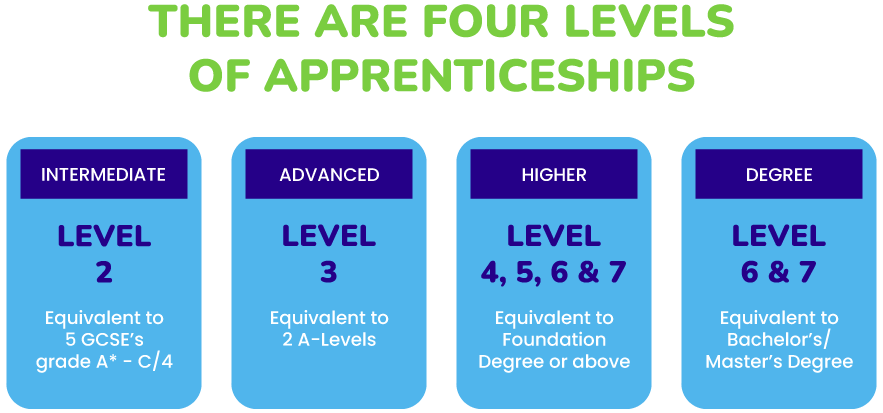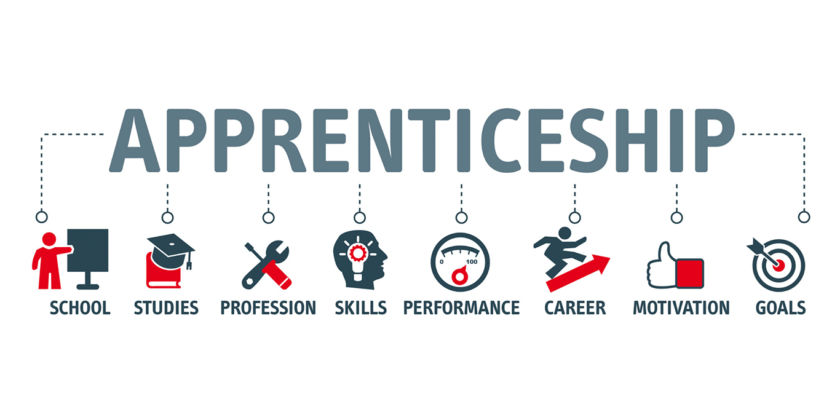In 2022, with universities costing up to £9,250 per year, it’s not surprising to see the rise in interest in apprenticeships. Undoubtedly the decision between getting paid to learn, or paying to learn is a hard one.
Whether you’re still deciding if you want to choose an Apprenticeship or a University – here’s your guide to making the decision that’s best for you!
What are apprenticeships?
Firstly, apprenticeships are paid full-time jobs where you learn/gain valuable experience. Furthermore, you get the opportunity to gain real-life experience working in that industry. Therefore this is the perfect way to get a taste of your future.
Generally, apprenticeships are seen as an option if you didn’t get into University. However, this is far from the truth – according to research from 1,000 decision-makers:
- 49% would employ candidates from their experience
- 24% would employ someone who had a relevant degree.
Finally, apprenticeships can take as little as 1 year to complete (with 5 years for a bachelor/master’s degree equivalent). Currently, you can start an apprenticeship as long as you are 16+.

What is University?
University is the most common option for students entering their final years of education. With a particularly large variety of different universities/courses to choose from. Students can pay up to £9,250 per year for a bachelor’s degree over 3 – 4 years, plus an extra 2 years in case they choose to do their master’s.
However, it is true that a degree is needed for some professions, examples of these are below:
- Surgeon
- Doctor
- Ecologist
- Nanotechnologist
- Psychotherapist
- Psychiatrist
Apprenticeships – Pros and Cons
Pros of apprenticeships
Here are the 5 most common advantages of apprenticeships:
Earn whilst you learn
Firstly, you earn a full-time salary whilst learning and gaining experience. As a result of this, you can save money for your future or spend it on what you enjoy doing.
You get certified
As mentioned above, you will earn a level 2-7 certification relevant to the apprenticeship you have chosen, consequently also gaining a qualification that could be equivalent to a university degree – but paid to do so.
Gain industry experience
Not only do you gain certification but also gain experience/knowledge on how to apply this to a real-life situation.
No debt
As you earn a salary, there’s no need to take out a student loan like university students. Therefore you don’t have to worry about repaying a loan, and can spend money where you want to.
Variety of careers to choose from
There are a variety of careers to choose from. Here are some examples:
- Marketing
- Business
- IT
- Accounting
- Data
- Software Engineering
Cons of Apprenticeships
Here are some common disadvantages of apprenticeships:
Some limitations to career choice
Consequently, apprenticeships don’t cover all fields – yet! If you want to go into the scientific or medical fields, then it’s best to check what requirements you need – as some careers require a degree.
May not experience ‘Uni-life’
Although you can visit friends/family at university, you won’t be in the thick of the ‘uni-life’ – doesn’t stop you from going up every weekend though!
Get more responsibility early on
Depending on your aspirations, you will be starting your career earlier than your uni counterparts – meaning full-time job responsibilities alongside your learning.
In conclusion
At the end of the day, it’s your decision to choose what benefits your plans for the future so long as it’s your decision and only yours. Taking into account the pros and cons of an Apprenticeship, we hope you use this guide to be sure you make the decision that’s best for you!
We have also listed links to apprentice providers below:


